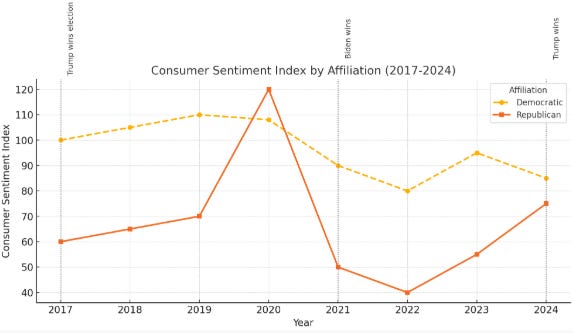Investment thesis compilation and news of the week 11/22/2024
Links to the most interesting investment theses and the notable news of the week. Subscribe to receive it every week!
- on Pinduoduo PDD 0.00%↑ through its platforms Pinduoduo and Temu, has rapidly expanded its e-commerce presence, achieving significant revenue growth and positioning itself as a formidable competitor to Amazon.
Kerrisdale Capital is short on Oklo Inc OKLO 0.00%↑ the ambitious plans for microreactors are unlikely to succeed due to technological challenges, regulatory hurdles, and underestimated costs, suggesting significant downside risk for investors.
Atai Capital on Haivision Systems Inc $HAI a compelling investment due to its strong market position in video streaming technology, underpinned by its SRT protocol and recurring revenue growth potential from expanding enterprise adoption.
Newcomerinvest on Kist $KIST a rapidly growing, digital eyecare platform providing eyewear for eyes everywhere. The company is growing fast.
- on Shimano $7309 is positioned as a market leader in cycling components with strong innovation and financials, benefiting from growing global cycling demand.
- on Jeronimo Martins JMT 0.00%↑ a dominant food retailer, with consistent revenue growth and strategic international expansion with effective cost management.
MuddyWatters is short on e.l.f. Beauty, Inc. ELF 0.00%↑ alleging that the company has overstated its revenue by approximately $135 million to $190 million over the past three quarters, potentially inflating its inventory figures to conceal insufficient sales.
Atrium Research on Capitan Silver Corp CAPT 0.00%↑ $CAPTF an exploration company focused on advancing its high-grade Cruz de Plata silver-gold project in Durango, Mexico. Expected return of ~129%.
- on Jeld-Wen JELD 0.00%↑ a door and window maker down big this year; trading at 13x earnings / 7x EBITDA, now a turnaround story
- on Krispy Kreme Inc DNUT 0.00%↑ an in-depth analysis of Krispy Kreme's market position, financial performance, and growth prospects, highlighting its strategic initiatives and potential challenges in the competitive doughnut industry.
- on Leon's Furniture $LNF an undervalued investment opportunity due to its dominant market position in Canadian home furnishings, shareholder-friendly policies, and robust cash flow generation, despite facing cyclical industry challenges.
Junkbondinvestor on Microstrategy MSTR 0.00%↑ premium
Republicans Are Feeling Good Again, Driving Up Consumer Sentiment
The post-election consumer sentiment data reflects a stark partisan divide, with Republicans expressing a significant boost in optimism about the economy and Democrats showing a decline, according to the University of Michigan survey. After Donald Trump's victory, the sentiment index for Republican households rose sharply by over 15 points, while it fell by more than 10 points among Democrats. This contributed to an overall increase in the sentiment index to 71.8, up from October’s 70.5, despite Democrats maintaining a higher overall sentiment level (81.3) than Republicans (69.1). A separate measure of current economic conditions showed little partisan variation, indicating that immediate perceptions of the economy remained largely unchanged.
The political impact on sentiment is notable but not entirely surprising, as surveys have historically shown such shifts when a new party assumes power. Experts, however, caution against interpreting sentiment polls as direct reflections of economic realities, emphasizing their potential as expressions of partisan identity. For instance, research by economists Ryan Cummings and Neale Mahoney indicates that Republicans exhibit a stronger sentiment swing—both positively and negatively—depending on whether their party holds power.
Beyond politics, other economic fundamentals contribute to optimism, such as easing inflation, strong labor markets, and lower borrowing costs. These factors play a role in shaping consumer behavior, although the relationship between sentiment and spending is complex. While heightened optimism can lead to increased discretionary spending, economists like Atif Mian argue that fundamental drivers, such as productivity and regulation, outweigh mood changes in influencing actual economic activity.
Supplementary data from the Pew Research Center also highlights a partisan sentiment shift, with positive views among Republicans jumping to 35% post-election, while Democrats’ optimism fell to 24%. Despite these shifts, overall confidence in Trump’s economic decision-making increased slightly to 59%.
While the partisan nature of sentiment is evident, the broader economic implications remain debated. Optimism, whether politically driven or tied to economic fundamentals, can influence consumer behavior to an extent, particularly for non-essential goods, but the complex interplay of emotions, politics, and economic realities makes predicting precise spending patterns challenging.







